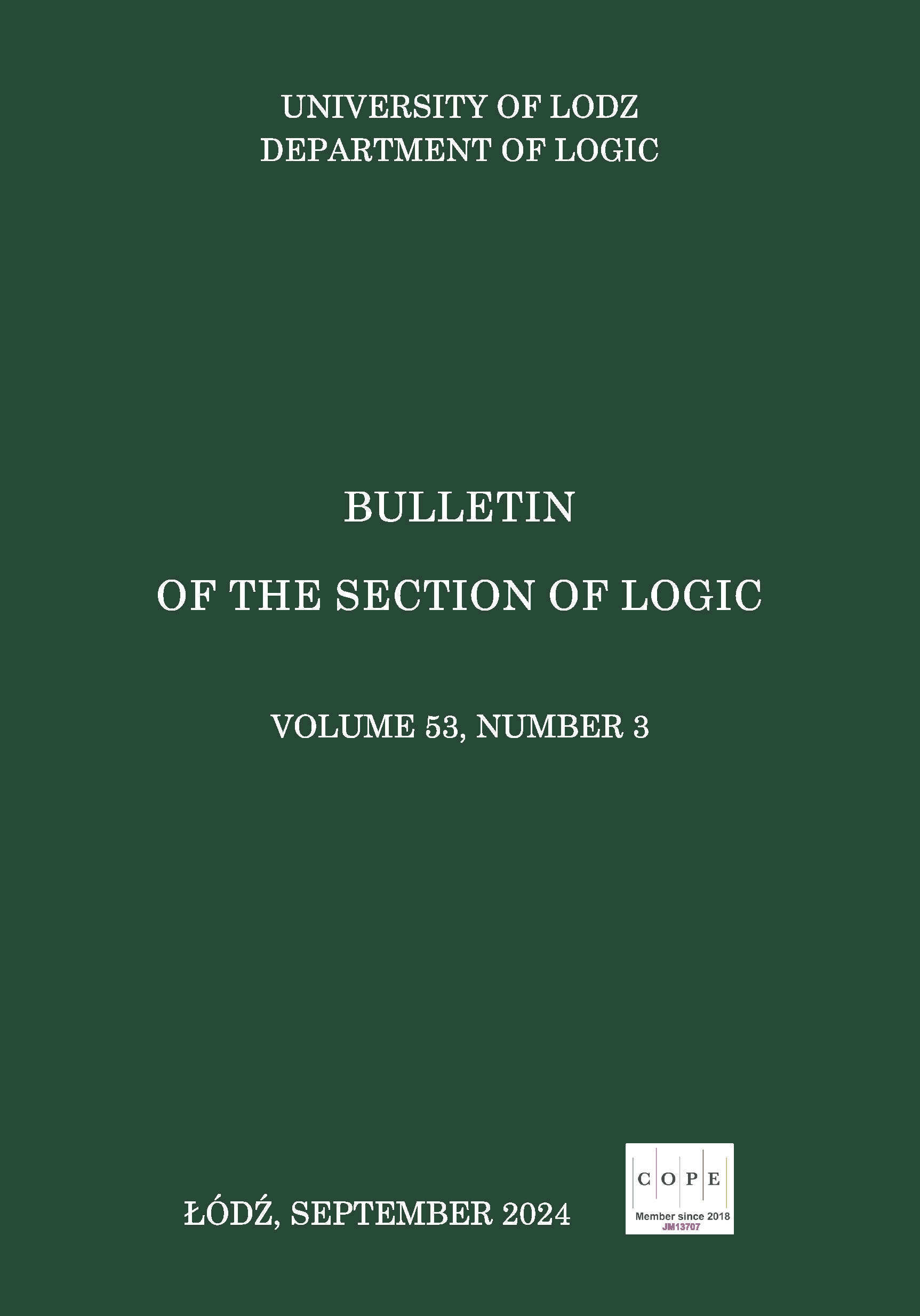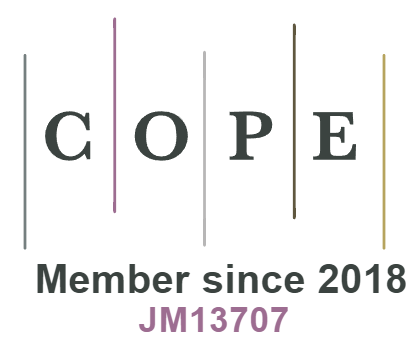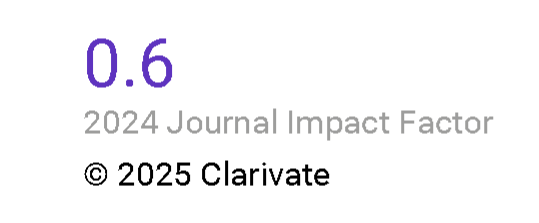Meaning is Use: the Case of Propositional Identity
DOI:
https://doi.org/10.18778/0138-0680.2024.05Keywords:
intuitionistic Logic, non-Fregean logic, proof-theoretic semanticsAbstract
We study natural deduction systems for a fragment of intuitionistic logic with propositional identity from the point of view of proof-theoretic semantics. We argue that the identity connective is a natural operator to be treated under the elimination rules as basic approach.
References
S. L. Bloom, R. Suszko, Investigations into the Sentential Calculus with Identity, Notre Dame Journal of Formal Logic, vol. 13(3) (1972), pp. 289–308, DOI: https://doi.org/10.1305/ndjfl/1093890617
Google Scholar
DOI: https://doi.org/10.1305/ndjfl/1093890617
S. Chlebowski, M. Gawek, A. Tomczyk, Natural Deduction Systems for Intuitionistic Logic with Identity, Studia Logica, vol. 110(6) (2022), pp. 1381– 1415, DOI: https://doi.org/10.1007/s11225-022-09995-0
Google Scholar
DOI: https://doi.org/10.1007/s11225-022-09995-0
S. Chlebowski, D. Leszczy´nska-Jasion, An investigation into intuitionistic logic with identity, Bulletin of the Section of Logic, vol. 48(4) (2019), pp. 259–283, DOI: https://doi.org/10.18778/0138-0680.48.4.02
Google Scholar
DOI: https://doi.org/10.18778/0138-0680.48.4.02
M. Dummett, The logical basis of metaphysics, Harvard University Press, Cambridge, Mass. (1991)
Google Scholar
N. Francez, On the notion of canonical derivations from open assumptions and its role in proof-theoretic semantics, Review of Symbolic Logic, vol. 8 (2015), pp. 296–305, DOI: https://doi.org/10.1017/S1755020315000027
Google Scholar
DOI: https://doi.org/10.1017/S1755020315000027
N. Francez, Proof-theoretic Semantics, vol. 57 of Studies in Logic, College Publications, Rickmansworth (2015)
Google Scholar
N. Francez, Views of proof-theoretic semantics: Reified proof-theoretic meanings, Journal of Logic and Computation, vol. 26 (2016), pp. 479–494, DOI: https://doi.org/10.1093/logcom/exu035
Google Scholar
DOI: https://doi.org/10.1093/logcom/exu035
G. Gentzen, Investigations into logical deductions, American Philosophical Quarterly, vol. 1(4) (1964), pp. 288–306, URL: http://www.jstor.org/stable/20009142
Google Scholar
A. Klev, The harmony of identity, Journal of Philosophical Logic, vol. 48(5) (2019), pp. 867–884, DOI: https://doi.org/10.1007/s10992-018-09499-0
Google Scholar
DOI: https://doi.org/10.1007/s10992-018-09499-0
P. Milne, Inversion principles and introduction rules, [in:] H. Wansing (ed.), Dag Prawitz on Proofs and Meaning, Springer, Cham (2013), pp. 189– 224, DOI: https://doi.org/10.1007/978-3-319-11041-7_8
Google Scholar
DOI: https://doi.org/10.1007/978-3-319-11041-7_8
S. Negri, J. von Plato, Proof Analysis. A Contribution to Hilbert’s Last Problem, Cambridge University Press, Cambridge (2011), DOI: https://doi.org/10.1017/CBO9781139003513
Google Scholar
DOI: https://doi.org/10.1017/CBO9781139003513
D. Prawitz, On the idea of a general proof theory, Synthese, (1974), pp. 63–77, DOI: https://doi.org/10.1007/BF00660889
Google Scholar
DOI: https://doi.org/10.1007/BF00660889
S. Read, Identity and harmony, Analysis, vol. 64(2) (2004), pp. 113–119, DOI: https://doi.org/10.1093/analys/64.2.113
Google Scholar
DOI: https://doi.org/10.1093/analys/64.2.113
P. Schroeder-Heister, Validity Concepts in Proof-theoretic Semantics, Synthese, vol. 148 (2006), pp. 525–571, DOI: https://doi.org/10.1007/s11229-004-6296-1
Google Scholar
DOI: https://doi.org/10.1007/s11229-004-6296-1
P. Schroeder-Heister, Proof Theoretical Validity Based on Elimination Rules, [in:] E. H. Haeusler, W. de Campos Sanz, B. Lopez (eds.), Why is this a Proof? Festschrift for Luiz Carlos Pereira, College Publications, Rickmansworth (2015), pp. 159–176.
Google Scholar
P. Schroeder-Heister, Proof-Theoretic Semantics, [in:] E. N. Zalta, U. Nodelman (eds.), The Stanford Encyclopedia of Philosophy, fall 2023 ed., Metaphysics Research Lab, Stanford University (2023), URL: https://plato.stanford.edu/archives/spr2018/entries/proof-theoretic-semantics/
Google Scholar
Downloads
Published
How to Cite
Issue
Section
License

This work is licensed under a Creative Commons Attribution-NonCommercial-NoDerivatives 4.0 International License.















